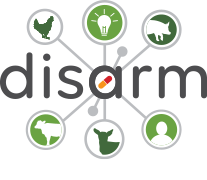476 – A review of the effects of dietary organic acids fed to swine (Research report – Suiryanrayna – 2015)
Click here for resource
476 Research report
A review of the effects of dietary organic acids fed to swine by Suiryanrayna, M.V.A.N., and J.V. Ramana 2015 Journal of Animal Science and Biotechnology 6: 11-Jan
In Significant Impact Groups: Feed / gut health \ Feed additives and supplements; Specific alternatives
Species targeted: Pigs;
Age: Young;
Summary:
The weaning transition is a complex period during which the piglets have to cope up with abrupt separation from their mother, mixing with other litters in a usually new environment and turning over to a less digestible solid creep feed to highly digestible liquid milk. Early weaned piglets are (3–4 weeks age) exposed to stress with a reduced feed intake, little or no weight gain. This post weaning lag period is due to a limited digestive and absorptive capacity due to insufficient production of hydrochloric acid, pancreatic enzymes and sudden changes in feed consistency and intake. The aim of this review is to evaluate the response of weaned piglets, growing pigs and reproductive m sows to dietary organic acids as illustrated in terms of performance, i.e., growth rate, feed intake and feed utilization. In addition, reasons for varying responses to and possible modes of action of organic acids will be discussed.
Where to find the original material: https://www.ncbi.nlm.nih.gov/pmc/articles/PMC4618844/pdf/40104_2015_Article_42.pdf; https://dx.doi.org/10.1186%2Fs40104-015-0042-z
Country: IN
